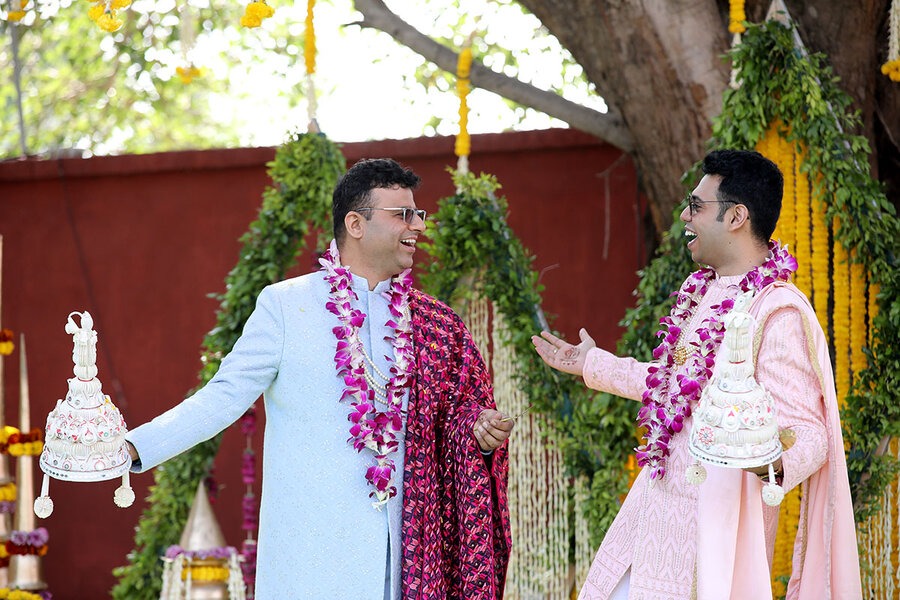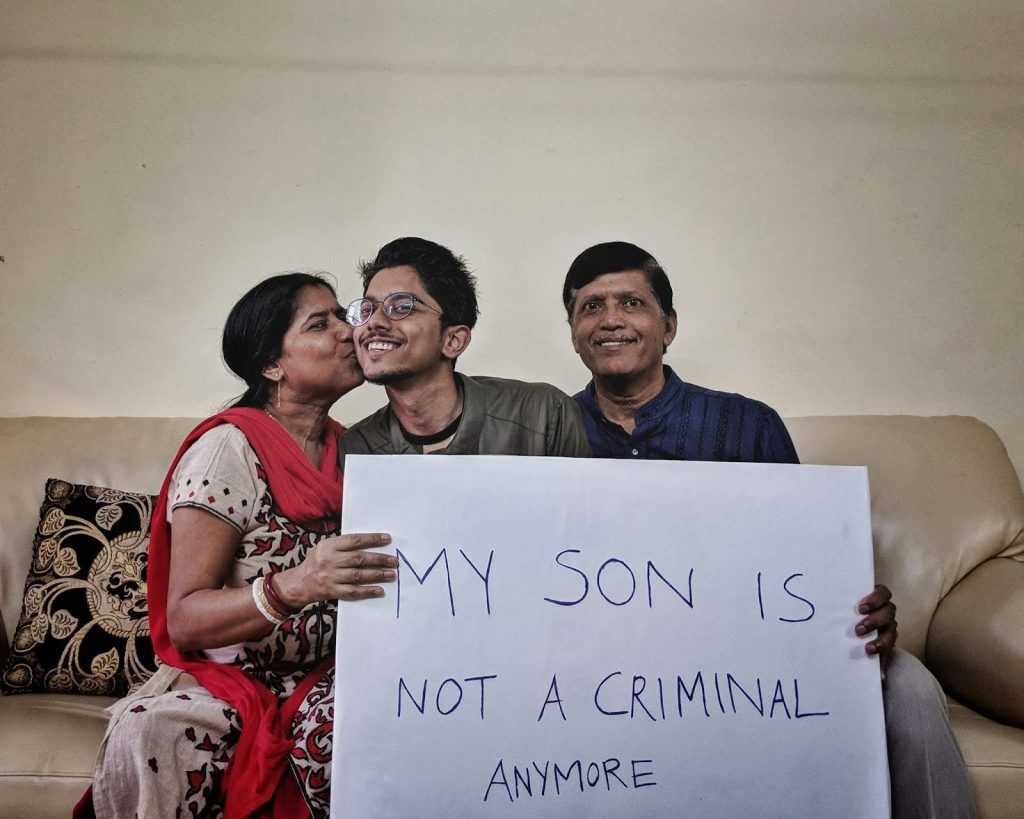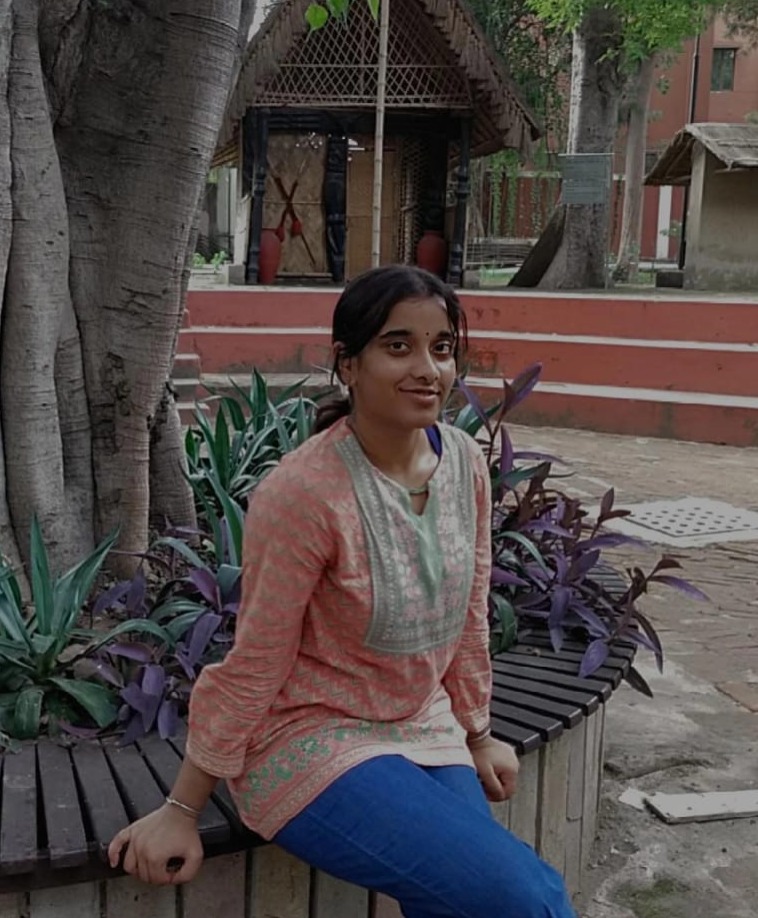
The Supreme Court Case on Same-Sex Marriage
The same-sex marriage case definitely caused a stir around the whole country. We saw how the issues around the LGBTQ+ community that were silent till now, erupted again due to a number of petitions in the Supreme Court. It definitely is sad that the whole matter has again become a hum to the ears. Yet, the perseverance of the lawyers who fought and the community members who withheld all humiliation to gain recognition as equal members of society is worth mentioning and celebrating. This case is as worthy of mention as any other case. Therefore, read on further to know the hows and whys of the case.
The Right to Marry with Dignity
Rules in society exist in subject to change anytime as and when their desirability in the society ceases to be important. Such is the situation with the colonial law on heterosexual marriages, where couples belonging to the same sex are allowed to marry and create a family. According to the Kinsley scale, India is home to the largest LGBTQIA+ community, yet our society is very conservative and homophobic when it comes to matters of homosexual relationships. But again, nothing is permanent and everything is temporary. 18 Indian couples of same-sex petitioned the Supreme Court for the legalization of same-sex marriages, which is a landmark case.
The hearing lasted for 10 days, and a lot of arguments were put on the table. The case brought forth the rights, obligations, and privileges that the ‘rule of law’ bestows upon the people. The Delhi Commission for Protection of Child Rights (DCPCR) also led its hand pout for support for the recognition of same-sex marriage, and also to file an intervention application to assist the children on whom the impact lasts longer. However, despite popular support for the legalization status of same-sex marriage, the law-making body doesn’t have the same stature and opposed the petitions. The Central government, Jamiat-Ulama-i-Hind, an Islamic Scholar body, and national child rights body NCPCR, were against the petitions.

What’s happened in the Supreme Court hearing over the 10 days?
The Special Marriage Act of 1954 was the subject of a number of petitions, which were opposed vehemently by the federal government and state governments. The Supreme Court reserved its decision on these petitions but gave broad hints that it might consider issuing a constitutional declaration for same-sex couples even though this might fall short of granting them the right to marry. The bench of Judges who oversaw the same-sex marriage case consisted of Chief Justice D Y Chandrachud, and Justices S K Kaul, S R Bhat, Hima Kohli, and P S Narasimha. Around a dozen lawyers presented their arguments over the 10 days of the hearing. The petitioners gave a reply to the Central Government that the right to marry was not just a fundamental right but was as equivalent as constituting the legislative area.

Why I believe that Same-Sex Marriage law would be a gamechanger
The Supreme Court has delivered many landmark judgments favoring the Pride Community in the past. It decriminalized homosexuality, a colonial-era law, and also recognized transgender as the third legal gender. However, despite such shifts in society, the center maintains a firm stand on traditional heterosexual marriages and that same-sex marriages don’t form a part of the family structure of India. This is increasingly problematic considering India has a considerable amount of Pride Community and couples who might fail to get a legal status from the government depriving them of many legal measures.
The lawyers have not just asked for a legal status citing that ‘marriage’ should include more rights than ‘cohabitation’ and should be extended to social and legal recognition of the marriage. The petitioners put forth a very ingrained aspect of Indian society that India is a marriage-based culture, and LGBTQ+ couples should be allowed to enjoy the same status as any other heterosexual couple, which includes major issues like finances, child custody, succession, inheritance, etc. The Center and a few states have put forth their opinion against this stature telling that marriage is connected to religion and culture, and the same-sex marriage status would bring forth eider debates within the personal law circle.
I personally believe that any and every individual despite their sexual orientation should be allowed to enjoy the pleasures that their society offers. There are very practical reasons why they should be allowed to marry each other, and one of the main reasons is to comply with the fundamental rights of the constitution ie. the right against discrimination and equality. Heterosexual couples enjoy various benefits by marrying, which include sharing health insurance, and pension benefits, which same-sex couples are deprived of. No society or government does justice to its citizens by stopping them from accessing basic fundamental aspects of society.
The legalization of same-sex marriage would address the ignorance issue and one of the justifications for prejudice, but it would not end discrimination against same-sex married couples. And tackling and reducing the prejudices and discrimination against the pride community would also ensure LGBTQ people’s safety, self-esteem, and well-being. Homosexuality has been an integral part of the culture and society of India since ancient times. The best example that I can cite is of Shikhandi, who was transgender. The Victorian puritanical and homophobic ideals considered the presentation of explicit sexual imagery to be “pornographic and evil.” Since the Colonial era of expansion, the Western perspective on sexuality has been greatly affected by reproductive assumptions. Instead of accepting the natural expression of desire that was formerly a part of Indian culture, the Indian psyche absorbed the Western moral and psychological’ view that sexuality is ‘pathological’ instead.
The very reason why same-sex couples require such a law is so that the basic component of any society, which is marriage, is enjoyed by them as well. Marriage accompanies with itself many other social rights as well such as child custody, property, insurance, etc. The day-to-day practices such as introducing partners in a social circle, going to parent-teacher meetings, or even addressing them with nicknames in public, is a sheer privilege enjoyed by heterosexual couples. This basic freedom is what the same-sex couples try to derive through the law which ingrains into social acceptance sooner or later.

Conclusion
Coming to a conclusion, denying some people the option to marry and form a family would merely lead to the creation of second-class citizens. At the same time, the rights and benefits enjoyed by the heterosexual couples would be denied to the community as well. Allowing same-sex marriages would lead to financial gains for the Union government, and local governments as well, thereby boosting the economy. Marriage is a social institution that should be separated from religion and kept secular by not limiting the religious objections against same-sex marriages.
Over time as we see, the concept of marriage over a period of time has evolved from being ‘traditional marriage’. The idea that marriage is a union of a ‘man’ and a ‘woman’ is incorrect. Allowing same-sex couples to marry and bestowing a legal status on the same, gives way to liberty and equality which is an international human right.
No one knows what might happen in the future. However, I would inherently prefer to keep faith in people and in governments, that change is inevitable. No society thrives on ancient values without change according to modern beliefs. The start of a big change would be social acceptance of the Pride community and the couples who want to live freely without the judgment of society on their choices. The Supreme Court has reserved the right to put out the verdict and I am hoping that it would be in favor of the disadvantaged community. Until then, the marathon continues.
Author

